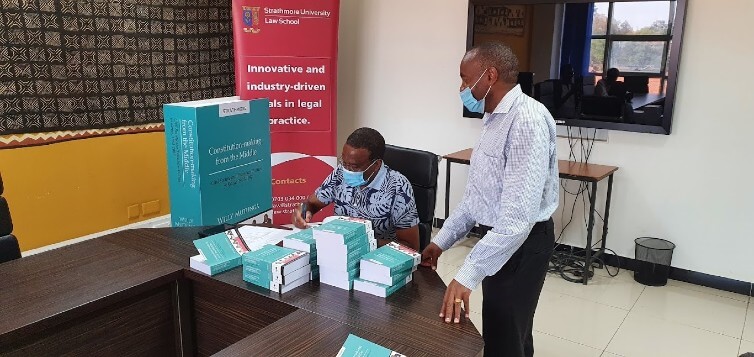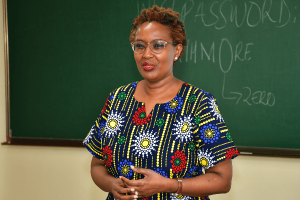The Constitution of Kenya 2010: Panacea or nostrum

The peaceful and united corralling of the people of Kenya on 4th August 2010 for the constitutional referendum heralded a ground-breaking shift in the state’s policy. The subsequent formal promulgation of the new constitution on 27th August 2010 by President Mwai Kibaki was welcomed by the international community, with messages of congratulations to the government and people of Kenya from, amongst others, former US President Barack Obama, the late former UN Secretary General Kofi Annan, and leaders of other African Great Lakes nations.
The promulgation was the culmination of years of clamour for a new constitution, which many hopefuls believed would end bloodshed, loss of lives, life-long injuries, and utter injustice. In retrospection to the clashes of 2007-08, Kenyans voted “Yes” for the new supreme law of the land, hopeful that it would not only be the answer to the many ills facing the country, but that it would also heal a divided nation. It was therefore a historical event equated by many Kenyans to the rebirth of our nation, matched only by those independence night celebrations, four decades earlier.
A decade later, on the date, there were no doves like the ones released by President Kibaki on the inaugural event to mark new beginnings for Kenyans. Nonetheless, we marked the 10th anniversary of the new Constitution of Kenya – a landmark contractual document that addresses all the political, social, and economic challenges that have harrowed the country since independence. It is inspired by the citizens’ desire for a country characterized by participatory governance, inclusive of development, human rights and the rule of law.
In celebrating 10 years of the Kenyan Constitution, ICJ-Kenya, Bonavero Institute of Human rights, Strathmore University Law School, and Katiba Institute partnered in hosting weekly webinars from Tuesday 14th July 2020 leading up to the apogee of the anniversary day which was marked by the launch of two books; A Liber Amicorum on Professor Yash Pal Ghai and ‘Constitution-Making from the Middle’ by retired Chief Justice Willy Mutunga. Prof. Ghai and Dr. Mutunga were monumental in the drafting of the 2010 Constitution. This three-week webinar series was graced by civil society organizations, law practitioners, and institutions of learning as well as Kenyans from all walks of life.
The aim of the webinar series was to dissect various chapters of the Constitution and provoke constructive and objective discussions from both panelists and participants. Topical discussions on Public Finance, Separation of Powers, Devolution, Equality and Non-discrimination, Land and Environment, National Security, Leadership and Integrity went a long way in reinforcing our national commitment to constitutionalism for national cohesion.
The theme around the discussions was ‘Transformative Constitutionalism under Kenya’s Constitution: Have we achieved the transformation sought by the Kenyan people?’. Professor Issa Shivji, author and academician from Tanzania, delivered the keynote address. He is one of Africa’s leading experts on law and development issues, having accumulated a lot of academic wealth and wisdom while teaching and working in several learning institutions the world over. In his address, Prof Shivji explained that Constitutions do not make revolutions; revolutions make constitutions.
The next decade of constitutional implementation coincides with the timeframe for the Sustainable Development Goals and the Kenya Vision 2030. It is prudent for the nation to harness the potential of all its people, in particular, women, youth, persons with disabilities, minorities, and marginalised groups – as envisaged by the Constitution. It is only through this that the country will realise its set-out goals. In view of this, Dr. Eric Kibet, an Assistant Professor at United States International University (USIU), in a chapter of his book addresses the expectations of Wanjiku when the new constitution was promulgated. He noted that while things have changed considerably for the better, the implementation of the supreme law still leaves much to be desired.
The 2010 Constitution has been hailed as one of the most progressive globally. Implemented fully as is currently formulated, the Constitution would address most of the challenges facing the country. Responding to the sentiments by Dr. Kibet, Professor Jill Gai, George Kegoro, Executive Director of the Kenya Human Rights Commission, Senior Counsel Nzamba Kitonga, a constitutional law expert and Roselyn Odede, a gender, policy, and governance expert, were of the view that political players ought not cannibalise the Constitution but instead should work towards its transformational agenda of addressing needs such as food, water, shelter, security, gender equality, good leadership and integrity, devolution and public finance management, among others. These, they said, were what Kenyans asked for when they voted in the new Constitution.
For justice to be served at all times, citizens must familiarise themselves with their constitutional rights and demand full compliance. They must demand more from devolution and the integrity and values threshold that they place on their leaders as espoused in the supreme law. These were also the views of John Githongo as he reflected on the transformative effect of devolution on many Kenyans despite the challenges.
The pertinent issues of justice and legal implementation of the rule of law dominated the celebrations of this historical anniversary. As she paid tribute to the Constitution of Kenya and acknowledged the strides made by the country since the promulgation, Rt. Hon. Patricia Scotland QC, Secretary General of the Commonwealth, reiterated that law is a tool for justice; justice is the goal and anything short of this will be a betrayal of our professional promise. Only when justice becomes reality will we be able to breath.
The crowning of this event was the launch of former Chief Justice, Dr. Willy Mutunga’s book “Constitutional Making from the Middle” concluding a remarkable six weeks of introspection and reflections. “The book tells a fascinating story. The story is about the potential and limits of the role of civil society in promoting fundamental political and constitutional change. It tells of the struggles of the Citizens Coalition for Constitutional Change (4Cs) for a new political dispensation for Kenya.” Prof. Yash Pal Ghai, former Chair, Constitution of Kenya Review Commission, also joined in to congratulate Dr. Mutunga. Both Dr. Luis Francheschi and Dr. Peter Kwenjera were also happy to join this one of a kind book launch, showering praises on Dr. Mutunga, Strathmore University Press, and Prof. Yash Pal Ghai who wrote the book’s forward.
What next for “We, the people” over the next 10 years? Something to brood over in the style of Javan the Poet’s entertaining spoken word piece during the event: Hatutasonga mbele le le le tukibonga mob bila actions. Zote ni kelele le le…
This article was written by Francis Kabutu.
Would you like to share your experience of living through the circumstances brought by the Covid-19 pandemic? Kindly email: communications@strathmore.edu



